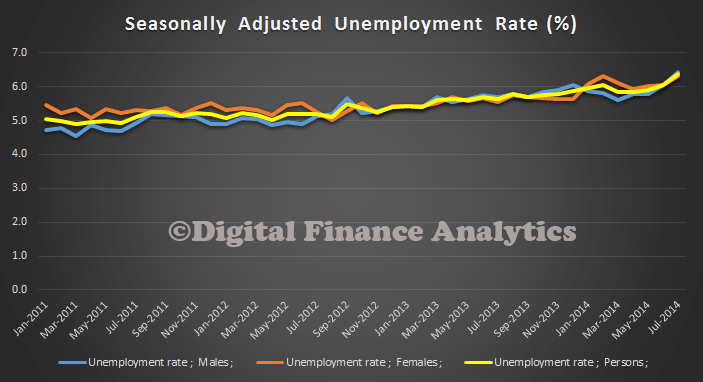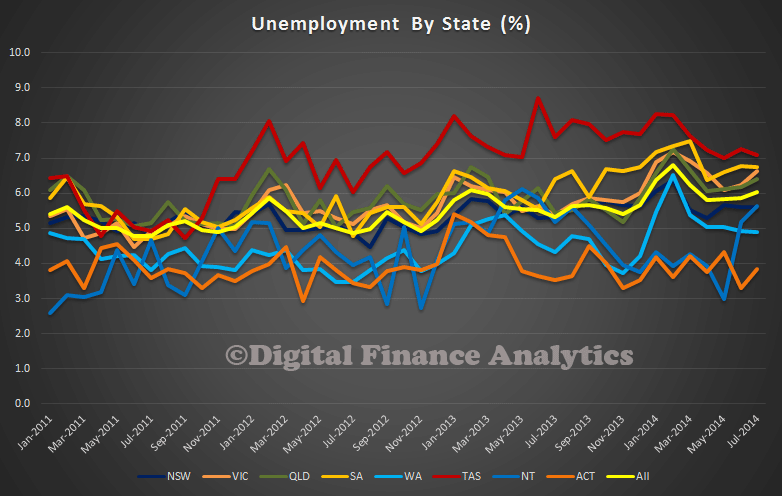According to the ABS, in data released today, Australia’s seasonally adjusted unemployment rate increased by 0.3 percentage points to 6.4 per cent in July 2014. We also note that female and male unemployment rates have converged.
 The seasonally adjusted labour force participation rate increased by 0.1 percentage points to 64.8 per cent in July 2014. The number of people employed decreased by 300 to 11,576,600 in July 2014 (seasonally adjusted). The decrease in employment was due to decreased part-time employment, down 14,800 people to 3,499,200. This was offset by increased full-time employment, up 14,500 people to 8,077,400. The monthly seasonally adjusted aggregate hours worked series decreased in July 2014, down 14.8 million hours (0.9%) to 1,610.7 million hours. The seasonally adjusted number of people unemployed increased by 43,700 to 789,000 in July 2014.
The seasonally adjusted labour force participation rate increased by 0.1 percentage points to 64.8 per cent in July 2014. The number of people employed decreased by 300 to 11,576,600 in July 2014 (seasonally adjusted). The decrease in employment was due to decreased part-time employment, down 14,800 people to 3,499,200. This was offset by increased full-time employment, up 14,500 people to 8,077,400. The monthly seasonally adjusted aggregate hours worked series decreased in July 2014, down 14.8 million hours (0.9%) to 1,610.7 million hours. The seasonally adjusted number of people unemployed increased by 43,700 to 789,000 in July 2014.
Looking at the state data, the average unadjusted rate unemployment rate increased 0.1 pts to 6.1%, based on unrounded estimates. ACT still has the lowest rate, whilst TAS has the highest.
 Whilst there are some statistical reasons for the result (changes in the sample this time), the fall in aggregate hours worked indicates this is a concerning result. As such, we expect unemployment to be a drag on momentum, and it will curb enthusiasm for property amongst some segments. In our household survey results however, the largest changes in unemployment were amongst those who were classified as property inactive, closely followed by those who have purchased recently. Given the high loan to income ratios in this group, any unemployment impact may be magnified in this highly leveraged group.
Whilst there are some statistical reasons for the result (changes in the sample this time), the fall in aggregate hours worked indicates this is a concerning result. As such, we expect unemployment to be a drag on momentum, and it will curb enthusiasm for property amongst some segments. In our household survey results however, the largest changes in unemployment were amongst those who were classified as property inactive, closely followed by those who have purchased recently. Given the high loan to income ratios in this group, any unemployment impact may be magnified in this highly leveraged group.
